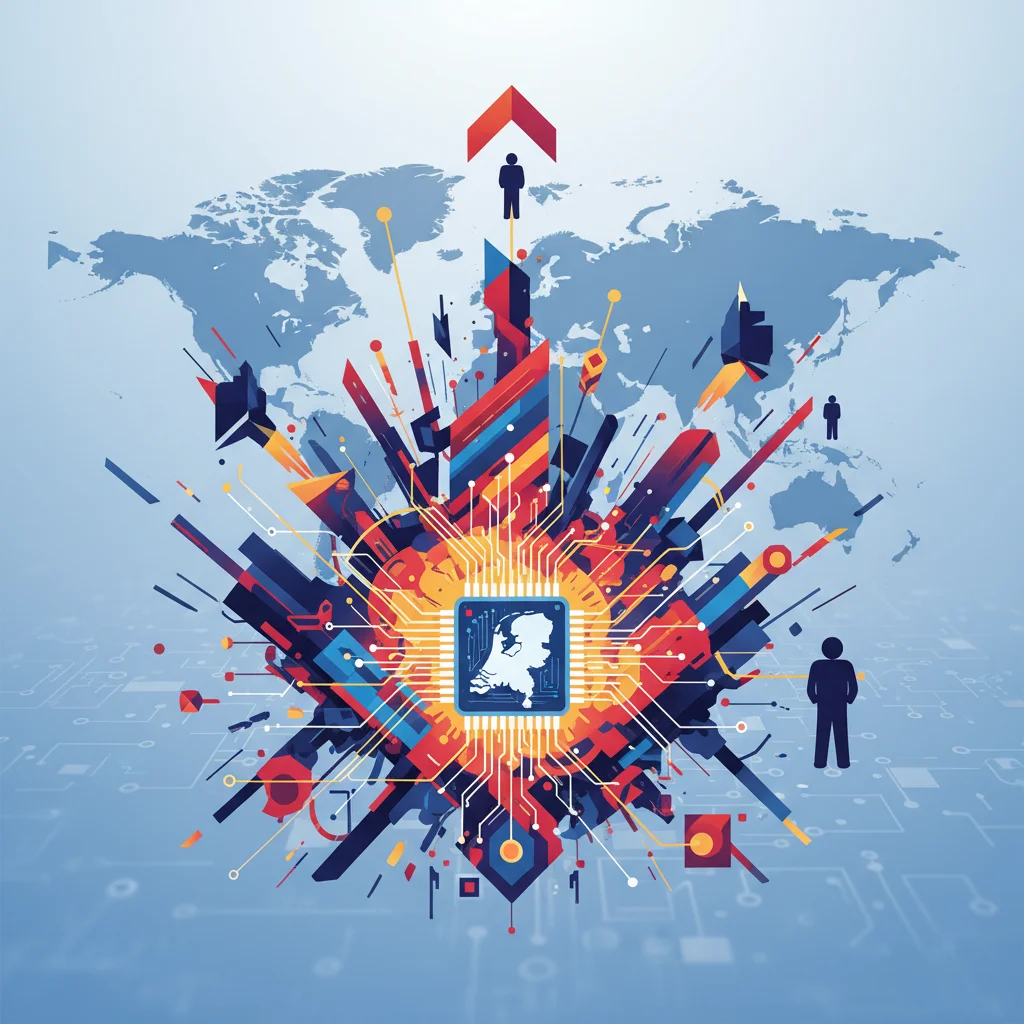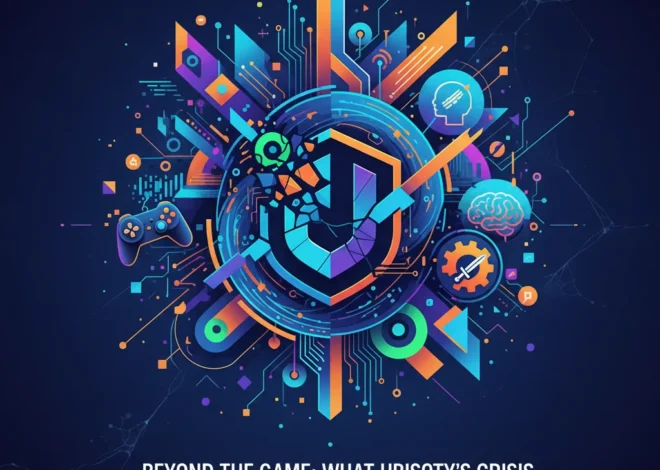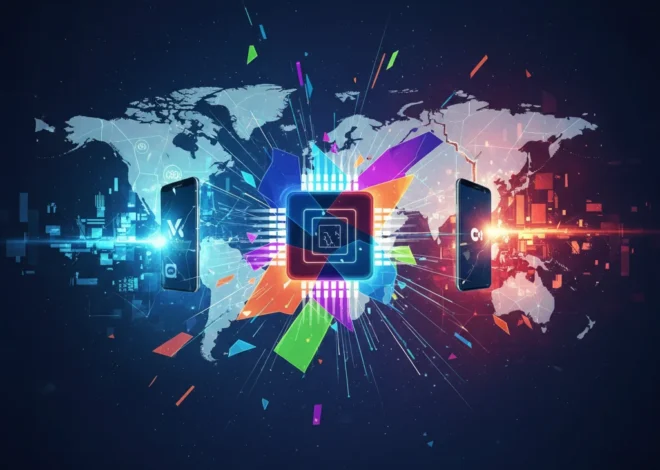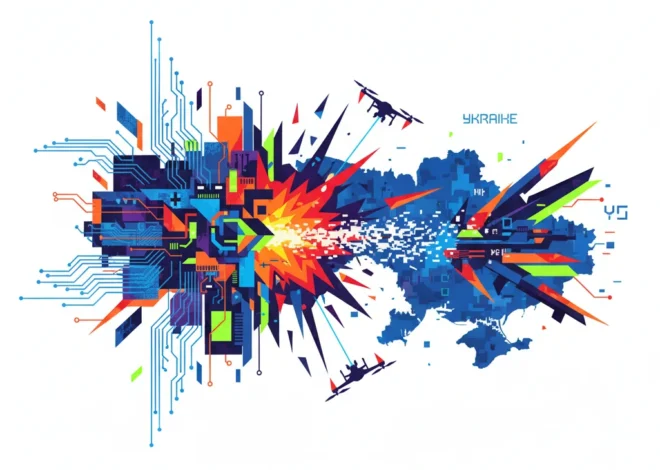
Chip Wars Escalate: Why a Tiny Dutch Startup Just Became a Geopolitical Flashpoint
In the high-stakes world of global technology, sometimes the biggest moves come in the smallest packages. In a move that sent quiet shockwaves through the tech and investment communities, the Dutch government recently took control of a China-owned semiconductor firm. The company, Nowi, isn’t a household name like Intel or NVIDIA. But this decision to nationalize a small chip company is a crystal-clear signal of a new reality: the battle for technological supremacy is intensifying, and the foundational hardware that powers everything from your smartwatch to advanced artificial intelligence is the new frontline.
For developers, entrepreneurs, and tech professionals, this might seem like a distant political maneuver. But it’s a development that strikes at the very heart of the digital ecosystem we all build and operate in. This isn’t just about geopolitics; it’s about the future of innovation, the security of our supply chains, and the very silicon that underpins the next generation of software, cloud infrastructure, and AI.
Let’s break down what happened, why a small Dutch startup became a strategic asset, and what this escalating “chip war” means for you.
The Deal: What Actually Happened?
On the surface, the transaction was straightforward. Invest-NL, the Dutch state’s investment arm, acquired Nowi, a Delft-based semiconductor startup. Nowi had previously been acquired by Nexperia, a Dutch company that is wholly owned by the Chinese tech firm Wingtech Technology. The Dutch government effectively bought out the Chinese owner, placing a strategically important technology back under national control.
The official reasoning? To protect “supplies of technology” and ensure that this valuable intellectual property remains within the Netherlands and, by extension, Europe. But who is Nowi, and why is their technology so important?
Nowi specializes in a niche but critical area of semiconductor design: energy-harvesting Power Management Integrated Circuits (PMICs). In simple terms, they design tiny, hyper-efficient chips that can power devices by scavenging energy from their surroundings—light, heat, or radio waves. This eliminates the need for batteries or frequent recharging in a vast range of small, connected devices. Think of the billions of sensors that will make up the Internet of Things (IoT), from smart city infrastructure and industrial automation sensors to wearable health monitors. Nowi’s tech is a key enabler for this future.
While these PMICs aren’t the high-powered GPUs used for training massive machine learning models, they represent the foundation of the data ecosystem. They are the endpoints, the nerve endings of the digital world, collecting the torrents of data that fuel the AI economy. Controlling this technology means having a say in how the next generation of connected devices is built, secured, and deployed.
The Bigger Picture: A Geopolitical Chess Match Played on Silicon
The Nowi acquisition didn’t happen in a vacuum. It’s a single move in a much larger, global chess match often dubbed the “chip wars.” For years, the United States and China have been locked in a struggle for technological dominance, with semiconductors at the epicenter. The U.S. has implemented sweeping export controls to limit China’s access to advanced chipmaking technology, a move solidified by the landmark CHIPS and Science Act, which invests billions to boost domestic manufacturing.
Europe, initially caught in the middle, is now asserting its own strategic autonomy. The European Union has launched its own European Chips Act, aiming to double its market share in the global semiconductor industry by 2030. The Netherlands plays a uniquely pivotal role in this drama. It’s home to ASML, a company with a global monopoly on the extreme ultraviolet (EUV) lithography machines required to manufacture the world’s most advanced microchips—the very chips that power the latest iPhones and the most powerful AI data centers.
This context is crucial. The Dutch government’s move to secure Nowi is part of this broader trend of “techno-nationalism,” where countries are viewing key technologies not just as commercial products but as strategic national assets vital for economic and national security.
To better understand the strategic landscape, let’s look at the key players and their primary assets in this technological contest.
| Geopolitical Player | Key Strengths in Semiconductor Value Chain | Strategic Objective |
|---|---|---|
| United States | Chip design (NVIDIA, AMD, Intel), Electronic Design Automation (EDA) software, advanced logic. | Maintain leadership in high-end chip design and AI; onshore manufacturing; restrict China’s access to advanced tech. |
| China | Assembly, testing, and packaging (ATP); growing strength in legacy chip manufacturing; massive domestic market. | Achieve semiconductor self-sufficiency; reduce reliance on foreign technology; dominate in areas like 5G and IoT. |
| European Union (led by Netherlands/Germany) | Crucial manufacturing equipment (ASML in the Netherlands), research & development, automotive and industrial chips. | Bolster “strategic autonomy,” strengthen domestic supply chains, reduce dependence on both the US and Asia. |
The Ripple Effect: What This Means for the Tech Industry
This geopolitical maneuvering has very real consequences for everyone in the tech ecosystem, from a solo developer writing programming code to the CEO of a major SaaS platform.
For Developers and Tech Professionals: Hardware is Back
For a long time, the world of software and the cloud felt abstracted away from the silicon it runs on. This is changing. The Nowi case underscores the importance of the entire tech stack. A vulnerability isn’t just a bug in your code; it can be a backdoor in the hardware. Understanding the provenance and security of the components you build on is becoming a critical aspect of cybersecurity. This incident serves as a reminder that the most elegant machine learning algorithm is useless without a secure and reliable chip to execute it.
For Entrepreneurs and Startups: Navigating a New Investment Landscape
If you’re a founder, especially in “deep tech” (AI, robotics, biotech, semiconductors), the investment landscape is shifting. The origin of capital now matters more than ever. An investment from a fund with ties to a geopolitical rival could put your company under a microscope or even make it a target for government intervention. Conversely, being aligned with national or regional strategic goals could unlock significant government grants, contracts, and support, as seen with initiatives like the European Chips Act. Entrepreneurs must now think like diplomats, navigating complex international relations as part of their fundraising and growth strategy.
For the AI and Automation Sector: Securing the Brains of the Operation
Artificial intelligence is the single most transformative technology of our time, but it’s completely dependent on a steady supply of increasingly powerful and specialized chips. The race for AI dominance is, fundamentally, a race for the best silicon. This includes not only the massive GPUs in data centers but also the tiny, efficient edge-AI chips that will run models on devices themselves. The Nowi acquisition, while focused on low-power chips, is part of the same trend: securing every link in the hardware chain that enables the AI revolution. From factory floor automation to autonomous vehicles, the future of AI relies on a secure, diverse, and resilient semiconductor supply chain. Any disruption poses a direct threat to the pace of AI innovation.
Conclusion: The New Rules of a Technologically Divided World
The Dutch government’s takeover of Nowi is more than a one-off news story. It’s a milestone in the redrawing of the global technology map. It signifies a shift from a connected, globalized tech industry to one that is fracturing along geopolitical lines. National security and economic resilience are now driving corporate and state decisions in a way we haven’t seen in decades.
For all of us building the future, the message is clear: the ground beneath our feet is shifting. The abstract world of code and algorithms is inextricably linked to the tangible world of silicon, supply chains, and statecraft. Being aware of these undercurrents is no longer optional; it’s essential for navigating the complex and challenging, yet opportunity-rich, landscape that lies ahead. The chip wars are here, and they’re just getting started.


